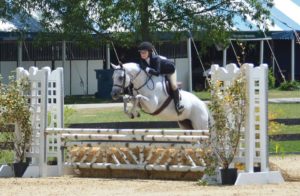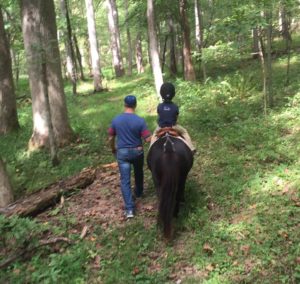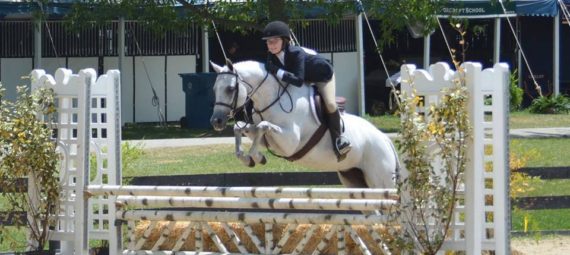
I have a pony in the barn, and boy, is she a good teacher. She has nice manners, is easy to make go and stop, and is never fresh. But, if you don’t remember to steer, she will work her way in toward the middle of the ring. Not in a rude way, rooting or tugging to get there. No, she just comes off the edge a few feet each time around the ring, until her rider realizes she’s getting closer and closer to the jumps set off the rail and has to do something about it.
Now it’s AN ISSUE; one that requires stronger aids, more attention and more frustration. The pony wasn’t informed that staying out on the rail is an important thing to do. Something she thought was okay in the beginning ends up not being okay at all. If it doesn’t get fixed, the canter is like a merry-go-round, and jumping is impossible.
Some riders get on this pony and immediately tell her what to do: stay out on the edge of the ring. The pony is very willing, but she doesn’t offer it on her own. The rider has to make her wishes very clear and make sure she gives the proper signals so the issue doesn’t arise. When there’s a quick correction, the rest of the ride is pleasant and straight-forward.
How many times have you worked with your horse, and something that was slightly annoying didn’t bother you in the beginning of your ride, but escalates to a bigger issue by the end? Maybe your horse started by bulging by the in-gate, and now he wants to be balky. Or he shied near a corner, and finally goes sideways and stares into the corner, convinced the bogey-man lives there. If you addressed it earlier, would it have become such a big deal?
Now think about that as it applies to other areas of your life. When a co-worker does something that bugs you, do you say something, or do you try to keep the peace by staying quiet? If your classmate acts in a way that irritates or offends you, or worse, prevents you from learning – do you say something? When you need to correct your child, maybe it feels too exhausting to constantly make the small correction, so you end up yelling at your kid once you’ve finally had enough.

My son, who’s seven, told me that a boy in his class liked to kneel on his seat and block my son’s view of the white board. I asked him if he ever said anything to him about it. He said he did, but he never asked him specifically to stop. He just complained out loud. I suggested that he directly ask his classmate to sit down. He did, and the boy stopped. It was a simple solution. I realize not every interaction is that simple, but it’s important to note whether our lack of communication has contributed to our misery.
If you don’t ask, you don’t get. Don’t assume others can read your mind. And don’t simmer in silence, hoping the other party knows your wishes or issues. Be direct and say something early.
“Life punishes the vague wish and rewards the specific ask.” – Tim Ferriss
Your horse needs your patience, timing and ability to clearly communicate your wishes. If he’s doing something you don’t want, make sure you catch it early on, and make sure your boundaries are clear. The nice thing is that if you start making corrections early, it usually takes less effort and things won’t tend to spin out of control. The little thing won’t become a big deal. You’ll get more out of each ride and make quicker progress.
Horses teach us about our relationships with people. Communicating clearly and setting boundaries can help you have better interactions with the horses and humans in your life.


